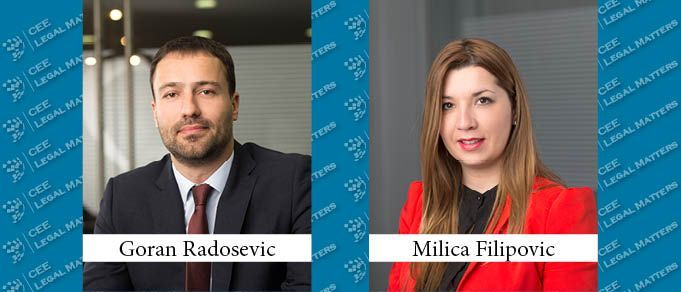At the beginning of April 2019, the Serbian Parliament adopted the new Law on Healthcare Protection (the “Law”), with the aim of improving the legal framework and facilitate better functioning of the healthcare system in Serbia, aligning it more closely to EU standards in this field.
This new piece of legislation introduces significant novelties to the healthcare sector, including the registration of healthcare institutions with the local Business Registers Agency, the liberalization of healthcare institution advertising (public and private), specific rules concerning the engagement of healthcare practitioners (HCPs) from public healthcare institutions in private practices, introducing rules for HCPs receiving gifts, and new prevention programs for patients.
New Rules on Healthcare Institutions
One of the key novelties provided by the Law is a new rule concerning the registration procedure for healthcare institutions. Specifically, as of October 11, 2020, public and private healthcare institutions will be obliged to register in the Register of Healthcare Institutions, which is to be established within the Serbian Business Registers Agency – the central authority for wide variety of registers. The newly established register will include very detailed information on each healthcare institution, including its name and type, information about its founder, the date and number of the license for the fulfillment of the prescribed conditions in order to perform healthcare activities issued by the relevant Ministry, working hours, etc. Currently, healthcare institutions are required to provide only limited information in registering with the Commercial Court, and there is no publicly available register.
Further, under the new Law, all public healthcare institutions are deemed to be founded either by the Republic of Serbia or by its autonomous provinces, i.e., the new Law canceled the previous rule that primary healthcare institutions should be owned by the local government.
Additionally, for the first time, healthcare institutions can now be founded as public private partnership projects, allowing the conjunction between the state and private capital to push for overall improvement of the healthcare protection system in Serbia.
Advertising of Healthcare Services
The previously applicable Law on Healthcare Protection was very strict regarding the advertising of healthcare services and allowed only a limited amount of information to be provided to patients, including the name and type of health institution and its seat and working hours. However, the new Law significantly liberalizes the rules in this regard, and public and private healthcare institutions are now allowed to advertise healthcare services, expert-medical procedures, and methods of healthcare protection in accordance with the registration license issued by the Ministry of Health, as well as contact details, with the aim of providing patients with necessary information.
Supplementary Work of HCPs
The new Law regulates, in a more precise manner, the supplementary work of HCPs by prescribing that they can enter into an agreement for supplementary work with their employers or with a maximum of three other employers for a maximum of one-third of the full-time working hours. As a precondition for the performance of supplementary work, the HCP has to obtain the prior consent of the director of the institution where the HCP performs his or her full-time working hours. Consent has to be provided within five working days from the request, and under the condition that the HCP fulfills certain requirements.
The validity of the consent is one year.
Conflict of Interest
The Law introduces separate provisions regulating conflicts of interests, anti-corruption requirements, and thresholds for HCPs receiving gifts. An individual gift (i.e. each specific gift) cannot exceed 5% of an average monthly net salary in Serbia, and all the gifts received during a one-year period cannot exceed the amount of an average monthly net salary in Serbia.
Unlike the Law on Anti-Corruption Agency, which includes the same threshold, and requires that any gift received by an official must be received in its total amount (one average month’s salary) within one year, the new Law on Healthcare Protection does not stipulate the period of time in which a gift must be completed, and consequently opens the door for potential corruptive activities. This gap in the Law has been widely criticized by experts and is expected to be changed in the future.
By Goran Radosevic, Partner / Independent attorney at law, and Milica Filipovic, Senior Associate / Independent attorney at law in cooperation with Karanovic & Partners
This Article was originally published in Issue 6.6 of the CEE Legal Matters Magazine. If you would like to receive a hard copy of the magazine, you can subscribe here.

